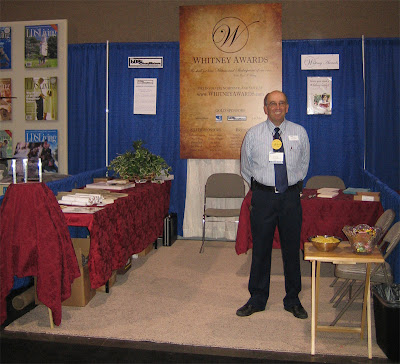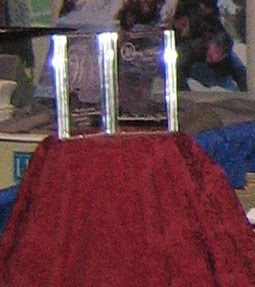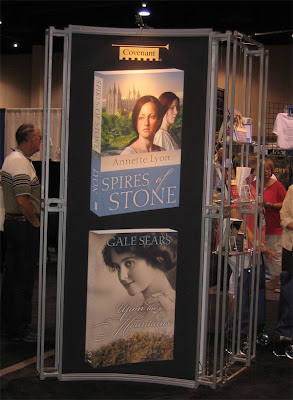PROVO, UT—OCTOBER 23, 2007
FOR IMMEDIATE RELEASE
WHITNEY AWARDS COMMITTEE ANNOUNCES LARGE CASH AWARDS
The Whitney Awards Committee announced today that they will be offering seven large cash awards to be presented at the upcoming Whitney Awards banquet in March 2008. These cash prizes are due to the generosity of the Whitney Awards’ marquis sponsor, ExclusivelyLDS.com.
Founded earlier this year, the Whitney Awards program is a non-profit organization dedicated to rewarding excellence among LDS authors. With the new sponsorship of ExclusivelyLDS.com, winning authors will receive up to $1000 along with their trophy.
The Whitneys offer a total of seven awards. The five genre awards (Best Romance/Women’s Fiction, Best Mystery/Suspense, Best YA/Children’s, Best Speculative Fiction, Best Historical) will each be accompanied by a $500 cash prize. The two overall winners, Best Novel by a New Author and Best Novel of the Year, will each receive $1000.
“We’re very excited about the sponsorship with ExclusivelyLDS.com,” Robison Wells, president of the Whitney Awards Committee, explains. “There is enormous talent among LDS authors, and every year seems to produce better and better novels. This is an exciting time to be part of the LDS fiction industry. Our hope is that these awards will raise awareness about the high quality fiction available from LDS authors, and to draw in new readers.”
Over a hundred years ago, Latter-Day Saint Apostle Orson F. Whitney declared “We shall yet have Miltons and Shakespeares of our own. . . . In God’s name and by His help we will build up a literature whose tops will touch the heaven, though its foundation may now be low on the earth.”
Anyone can nominate a novel published during the previous calendar year in any of seven categories, and a final academy of industry professionals will vote on the final ballot. Nominations are being taken for books published in 2007 by LDS authors at the Whitney Awards website: www.whitneyawards.com
###
CONTACT:
Robison Wells
Whitney Awards President
www.whitneyawards.com



